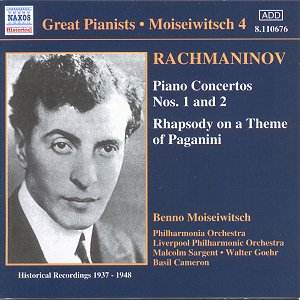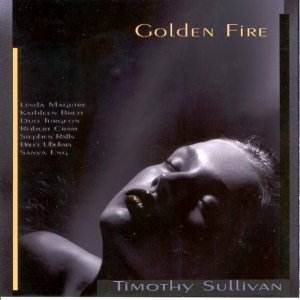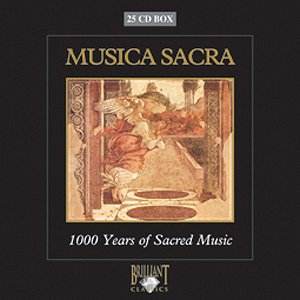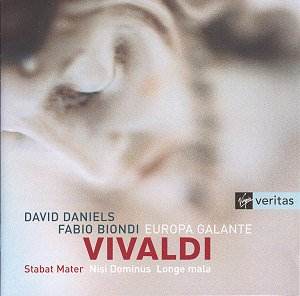 Composer: Sergei Rachmaninov
Composer: Sergei Rachmaninov
Works: Piano Concerto No. 1, Piano Concerto No. 2, Rhapsody on a Theme of Paganini
Performers: Benno Moiseiwitsch (piano), Philharmonia Orchestra, Liverpool Philharmonic Orchestra
Recording: Recorded between 1937 and 1948
Label: NAXOS HISTORICAL 8.110676
Rachmaninov’s piano concertos are pillars of the Romantic repertoire, embodying both the lush lyricism and technical demands that define his style. The First and Second Piano Concertos, along with the Rhapsody on a Theme of Paganini, reveal the composer at various stages of his artistic journey, from the youthful exuberance of the First Concerto to the mature, introspective qualities of the Second. This Naxos Historical release, featuring the artistry of Benno Moiseiwitsch alongside prominent orchestras of the mid-20th century, offers a captivating glimpse into a significant period in Rachmaninov’s legacy.
Moiseiwitsch’s interpretations are marked by a rich tonal palette that brings out the intricate textures of Rachmaninov’s orchestration. In the First Concerto, the pianist’s lush phrasing and singing legato create a compelling allure, transforming the work into a deeply expressive experience. His rhythmic flexibility and dynamic control enhance the lyrical passages, while the brilliant passagework is delivered with a clarity that rivals even Rachmaninov’s own recordings. The youthful energy of the Philharmonia Orchestra under Malcolm Sargent complements Moiseiwitsch beautifully, their synergy bringing forth the concerto’s vibrant character.
The Second Concerto, often hailed as one of Rachmaninov’s masterpieces, is given a performance that is both technically assured and emotionally resonant. Moiseiwitsch’s handling of the octave passage in the first movement is particularly striking; he executes it with a deft touch that showcases his technical prowess while maintaining an underlying lyricism. His rubato is infused with a complex subtlety that highlights the inner voicings, revealing layers of emotion often submerged in more conventional interpretations. The lush orchestration, led with conviction by Basil Cameron, envelops the piano with a rich sonic tapestry, creating a compelling dialogue between soloist and ensemble.
In the Rhapsody on a Theme of Paganini, Moiseiwitsch’s coloristic genius shines through. The interpretation is not merely a display of virtuosity; rather, it is a thoughtful exploration of the work’s thematic material. His phrasing is particularly noteworthy, characterized by an unerring sense of balance between the hands. The inner voicings are articulated with remarkable clarity, ensuring that details do not become lost in the orchestral fabric. The recording quality, considering its historical context, is commendable, capturing the nuances of Moiseiwitsch’s playing and the orchestral support effectively.
This release serves not only as a testament to Moiseiwitsch’s artistry but also as a reminder of his significant place in the pantheon of great pianists. His interpretations of Rachmaninov’s works resonate with a depth of understanding and a technical prowess that continue to inspire. For collectors and enthusiasts alike, this recording stands as an essential acquisition, offering performances that are both historically significant and artistically profound. The interplay of technical brilliance and lyrical beauty reflects the very essence of Rachmaninov’s music, ensuring that these interpretations remain vital within the ever-expanding discourse of classical performance.



